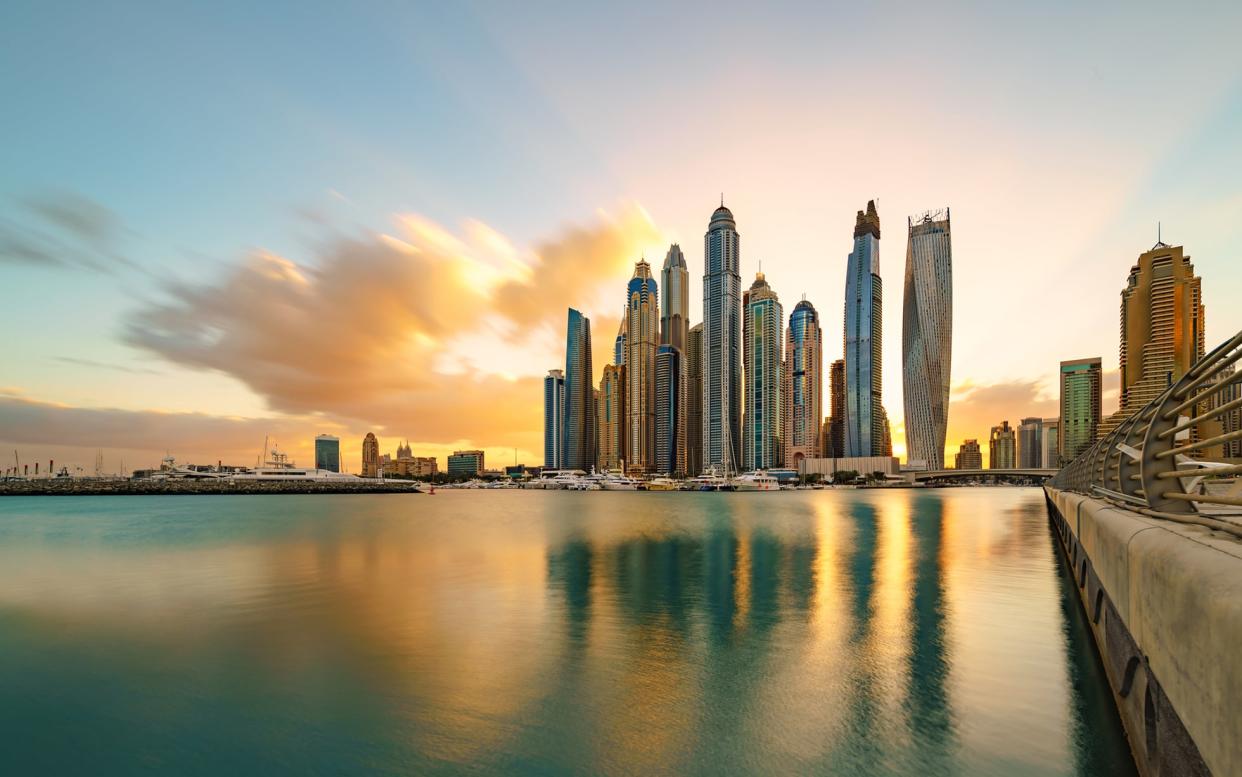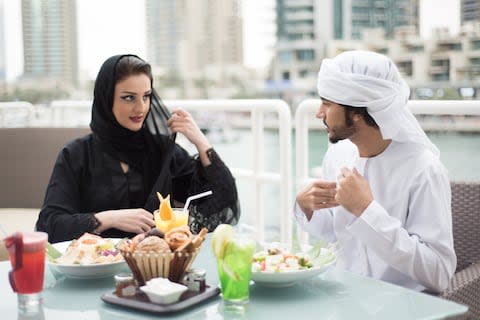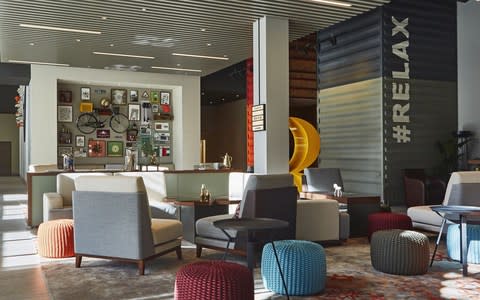Sorting fact from fiction: What you can and can't do in Dubai

Dubai has promoted itself as a glamorous, cosmopolitan city where visitors can indulge in non-stop sun, sea and shopping, and expats can make their (tax-free) fortunes. The strategy has paid off, transforming the once-desolate desert emirate into one of the most popular travel destinations in the world, attracting a record-breaking 15.8 million visitors in 2017.
While Dubai has opened itself to the world, it nevertheless remains an Islamic city in a conservative country and region. When visiting Dubai, some rules are pretty obvious, but others less so, and there are regular reports of hapless foreigners falling foul of local laws. Here’s the lowdown on the dos and don’ts.
You can drink alcohol
Alcohol is available in licensed bars, clubs and restaurants, which are generally attached to hotels (and increasingly in areas like City Walk, La Mer and DIFC). It’s fine to have a drink on flights operated by Emirates Airlines and Etihad Airways, and booze is served in airport lounges in Dubai and available to buy in duty free. The legal drinking age is 21, so take your photo ID if you want to hit the dancefloor at White Dubai.

Just don’t be drunk in public
All-you-can-drink Friday brunches are an expat institution in Dubai, although it’s illegal to be drunk or under the influence of alcohol in public. According to the British Embassy, UK nationals in Dubai have been arrested and charged under this law, often for unruly or offensive behaviour. So basically, enjoy yourself, don’t be an idiot and take a taxi directly to your hotel after a boozy session.

It’s OK to hold hands
Kissing in public is frowned upon, however, and could land you in trouble with the law. Sex outside marriage is illegal, and it’s technically against the law to share a hotel room if you aren’t married (although in practice, hotels don’t ask for proof of wedded bliss when you check in). Individuals have been arrested for sex outside of marriage, including alleged rape victims, and homosexuality is illegal.
You don’t have to wear an abaya
Swimwear and shorts are fine at beaches, waterparks and around the pool, but visitors are asked to dress modestly in public places and avoid wearing tight or revealing clothes, especially during Ramadan. You’ll see plenty of flesh on display in clubs and bars, so pack a pashmina to wear en route. Women should keep shoulders covered in malls, and you’ll feel more comfortable if you’re covered up in more conservative neighbourhoods such as Bur Dubai and Deira.
You can eat bacon
While it is haram for Muslims to eat pork, you will see it on menus in Dubai. Food outlets need a special permit to sell it, which requires a second kitchen for cooked pork, so bacon tends to be available only in five-star hotels and larger international restaurants. Can’t live without a fry-up on holiday? Check out the brilliant breakfast buffets at Jumeirah Beach Hotel and Grosvenor House.

You need to watch what you post on Instagram
Like many countries, you can’t take photos of military areas, government buildings and strategic sites such as airports and ports. Ask permission before photographing people and be careful when posting images on social media, as it’s against the law to publish images of people without their consent. Criticising the UAE government online can also land you in hot water, while swearing and flipping the bird (including as an emoji) can get you jailed or deported.
You can visit a mosque
Islam is the official religion, but Dubai is tolerant of other faiths and home to Christian churches and Sikh and Hindu temples. Jumeirah Mosque is open to non-Muslim visitors (excluding Fridays), and the Sheikh Mohammed Centre for Cultural Understanding hosts guided tours six days a week, followed by a no-holds-barred Q&A session about Islam. The centre also hosts cultural meals where you sit on the floor in a traditional majlis and sample local Emirati food.

You can do Dubai on a budget
Haven’t got a cool £16,000 to blow on the Royal Bridge Suite? As Dubai gears up to host Expo 2020, mid-market hotel chains like Rove are booming; the hip homegrown brand recently opened its fifth hotel in Dubai, with double rooms from AED 282 (£59). Expats make up more than 91% of the emirate’s 2.9 million population, so you’ll find plenty of cheap and tasty food from across the globe, while pristine public beaches are free and the metro will set you back just AED 3 (63p).
Solve the daily Crossword

